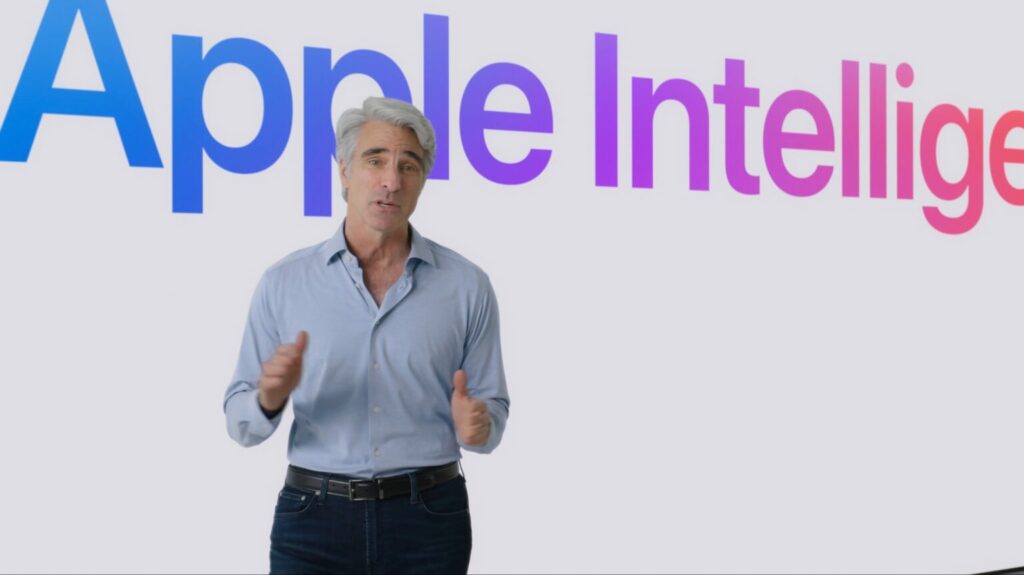In the wake of the Worldwide Developers Conference (WWDC), Apple’s Craig Federighi has taken a stand to defend the company’s approach to integrating artificial intelligence (AI) into its Macs and iPads. While some critics have suggested that Apple is lagging behind in the AI race, Federighi argues that the company’s focus is on seamlessly weaving AI capabilities into the user experience rather than simply marketing them as standalone features.
Federighi points out that Macs have been equipped with Neural Engines since 2020, enabling them to leverage the power of AI for various tasks. However, Apple’s philosophy seems to prioritize making these AI features feel like a natural, integral part of the user experience rather than a flashy selling point.
This approach stands in contrast to some competitors who have been heavily promoting their devices as “AI PCs” or highlighting AI capabilities as a defining characteristic. Apple, on the other hand, appears to believe that the best AI is the kind that enhances the user experience without drawing attention to itself.

The Debate Over Dual-Booting: Specialized Devices vs. Versatility
Another point of contention addressed by Federighi is the idea of iPads having the ability to dual-boot iPadOS and macOS. Some users and analysts have suggested that this feature could provide greater flexibility and versatility to iPad users, allowing them to use their devices more like traditional computers when needed.
However, Federighi firmly rejects this idea, arguing that iPads and Macs are designed to excel at different tasks and should remain focused, specialized devices. He believes that the strength of each platform lies in its ability to provide a tailored, optimized experience for specific use cases, rather than trying to be a jack-of-all-trades.
This stance reflects a broader philosophical difference between Apple and some of its competitors. While some companies aim to create devices that can handle a wide range of tasks and cater to various user preferences, Apple seems to prioritize creating purpose-built devices that excel at specific functions.
Reactions and Implications: Assessing Apple’s AI Strategy
Federighi’s comments have sparked discussions among tech enthusiasts, analysts, and everyday users about the merits of Apple’s approach to AI integration. Some see Apple’s focus on seamless, behind-the-scenes AI as a refreshing counterpoint to the hype and marketing buzz surrounding AI in the tech industry.
Others, however, argue that Apple risks falling behind its competitors by not being more aggressive in its AI development and promotion. They point to the rapid advancements being made by companies like Google, Microsoft, and Amazon in the field of AI and question whether Apple’s more understated approach will be enough to keep pace.
Ultimately, the effectiveness of Apple’s AI strategy will be judged by the user experience it delivers. If Apple can continue to provide powerful, intuitive, and seamlessly integrated AI features in its Macs and iPads, it may well prove that flashy marketing is less important than tangible benefits to users.
Looking Ahead: The Future of AI in Apple Devices
As the AI landscape continues to evolve at a rapid pace, it will be fascinating to see how Apple’s approach to AI integration develops in the coming years. Will the company double down on its philosophy of seamless, behind-the-scenes AI, or will it feel pressured to make more overt, marketable leaps in AI capabilities?
Regardless of the path Apple chooses, Federighi’s comments serve as a reminder that there is more than one way to approach the integration of AI into our devices. As users and tech enthusiasts, we should consider not just the raw capabilities of AI, but also how those capabilities are implemented and how they impact our day-to-day experiences with the devices we rely on.
In the end, the true measure of success for any AI strategy will be the value it brings to users’ lives. And in that regard, Apple’s focus on seamless, user-centric AI integration may prove to be a winning formula.










Add Comment